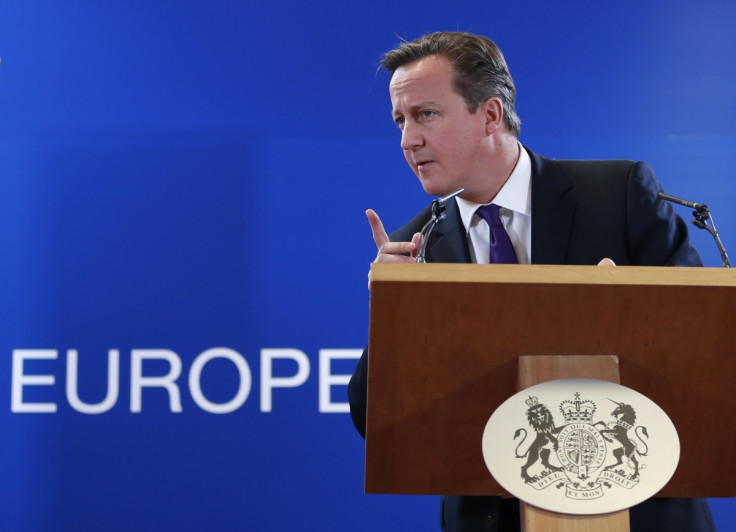EU referendum: David Cameron purdah defeat could force re-think for prime minister

David Cameron's crushing defeat in parliament over the EU referendum bill could force the prime minister to re-think the way he deals with major votes during his premiership, according to a leading Eurosceptic. Robert Oxley, campaign director of Business for Britain, told IBTimes UK the government lost in the 7 September vote because the top Tories "were not on the side of moderate or reasonable opinion".
The comments come after 37 Conservative MPs rebelled against the government and voted down the government's amendment to change so-called "purdah" rules, which limit government activity in a run-up to an election. The right-wingers allied themselves with the SNP and Labour to defeat the government 312 to 285 (a majority of 27).
Cameron and his ministers had already made concessions on the purdah rules after increasing Eurosceptic pressure but the government still wanted a number of exceptions. However, backbench Tory MPs, including Bernard Jenkin, said they wanted stronger purdah rules.
"It's a victory, it's not one to crow about. It was just a case of making sure, that given we are going to have this monumental vote, it's absolutely right that that referendum is seen to be fair and legitimate," Oxley added.
Parliament is going to be very powerful over the next five years because there's going to be a lot of votes and MPs are going to act in the national interest
The Eurosceptic also "suspected" the government contributed to its loss by the "way they were acting". Oxley explained the ministers' tactics, which included "dumping down" last-minute amendments, could have turned Tory backbenchers off.
Cameron's defeat was especially embarrassing because Labour, the official opposition, has been engaged in selecting a new leader and the government loss came only months after the Conservatives secured a majority at the general election. But Oxley said the result could change the approach the government now takes on major issues.
"Parliament is going to be very powerful over the next five years because there's going to be a lot of votes and MPs are going to act in the national interest. We have seen an example of that this week, let's see how that dictates over the next five years. It's going to be a fascinating time in politics," he added.
Cameron 'completely lost control'
Meanwhile, Labour and the SNP have seized on the defeat and Alex Salmond, the SNP's international affairs spokesperson, claimed Cameron has "completely lost control" of the EU referendum.
"First Cameron backed down on collective cabinet responsibility, then in the face of parliamentary defeat in June he collapsed in his attempt to hold it on the same day as the Scottish elections and, just last week, he was again turned over by the Electoral Commission on the referendum question. Now he has been defeated in the Commons with the help of his own backbenchers," the nationalist firebrand said.
"Cameron has completely lost control of the European referendum process and is now being controlled entirely by events and parliamentary arithmetic. The arrogance of the prime minister and the UK government has been their downfall – this latest defeat shows that they cannot ride roughshod over parliament."
There is no date set for the EU referendum but Cameron has promised to hold the historic vote by the end of 2017 and BBC's Newsnight has reported that the referendum could come as early as April 2016. The latest opinion poll on the vote, conducted by Survation in August, found a slim majority (51%) would vote to leave the 28-member bloc, whereas 49% of respondents would choose to remain inside the political and economic union.
© Copyright IBTimes 2024. All rights reserved.






